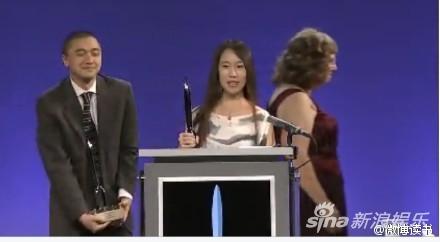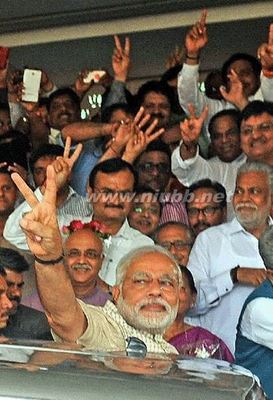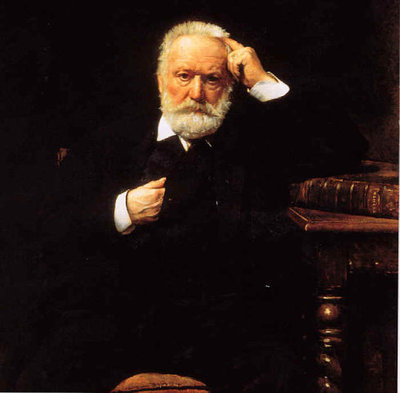其他方面大家都分析得很好了,我就从刘宇昆的翻译 Folding Beijing 和《北京折叠》原文对比的角度来讲一讲吧。
说句实话,放在一起读的时候,我常常觉得很多地方英文才是原文,而中文是翻译……
做一些简单的对照:
1.
原文:老刀回家洗了个澡,换了衣服。白色衬衫和褐色裤子,这是他唯一一套体面衣服,衬衫袖口磨了边,他把袖子卷到胳膊肘。
译文: Lao Dao had gone home, first to shower and then to change. He was wearing a white shirt and a pair of brown pants—the only decent clothes he owned.
《北京折叠》在语言方面一个比较明显的问题是主语的频繁转换导致的混乱。比如上面这段小说的开篇,短短几个句子里,加粗的主语部分,从老刀到衬衫到袖口再到老刀,来回跳跃了四次,相比之下,译文的只用了两个主语,「Lao Dao」和「He」,而且指代是一致的,配合破折号的解释,就显得简明流利许多。
2.
原文:两旁狼吞虎咽的饥饿少年围绕着他。
译文:A group of hungry teenagers squatted around him, devouring their food.
(一群饥饿的少年蹲在他周围,正在狼吞虎咽)
3.
原文:步行街通常只是步行街,但对清理队的车除外。
译文:Vehicles were normally not allowed in the pedestrian lane, but the cleaning trucks were an exception.
(一般来说,车辆不允许在步行街上行驶,不过清理车是例外。)
4.
原文:老刀本来没什么奢望,可是自从糖糖一岁半之后,就特别喜欢音乐。
译文:Lao Dao didn’t harbor unrealistic hopes, but Tangtang had loved music since she was an eighteen-month-old. (糖糖自从一岁半以后,就特别喜欢音乐)
5.
原文:这是24小时周期的分隔时刻。
译文:This was a process repeated every twenty-four hours.
(这是一个每24小时就会重复的过程)
6.
原文:霓虹灯、店铺招牌、阳台和附加结构都被吸收入墙体
译文:neon signs, shop awnings, balconies, and other protruding fixtures retracted into the buildings
所以说刘宇昆的翻译很棒,如果给我这种渣水平来翻译,说不定会把这句的「吸收」翻译成「absorb」而非 「retract」……
7.
原文:结构见缝插针
译文:the buildings compacted themselves into the smallest space
8.
原文:立方体顶端伸出招牌,连成商铺的走廊,两侧的塑料棚向头顶延伸闭合。
译文:Signboards emerged from the tops of the cubes and connected together while plastic awnings extended from both sides of the lane to meet in the middle, forming a corridor of shops.
也许「连成商铺的走廊」像译文里一样放在句子的末尾会更好理解。
9.
原文:第一空间的土地更厚,土壤里埋藏配重物质。人口和建筑的失衡用土地来换。
译文:To remedy the imbalance, the earth was made thicker in First Space, and extra ballast buried in the soil to make up for the missing people and buildings.
(为了弥补这样的不平衡,第一空间的土地更厚,土壤里埋着额外的配重物质,以弥补(第一空间)人口和建筑物的不足。)
10.
原文:他还没找到可以独自生存的意义和最后的怀疑主义。
译文:He had not found the meaning of his existence or the ultimate refuge of cynicism.
这个原文和译文我都不是很懂,求懂的小伙伴指点一下~
11.
原文:便继续辛苦摩擦手脚,低眉顺眼勤恳
译文:they had continued to toil diligently and docilely(继续勤勉和顺从地劳作)
12.
原文:她是他夜晚的梦境,是他抖动自己时看到的光芒。
译文:She was his dream at night, and also the light he saw when he trembled in his own hand.
这一句的原文和翻译我都很服……刘宇昆把手都翻译出来了……
13.
原文:一个三十几岁的男人走在最前面,一到跟前就用一个纽扣一样的小银盘上上下下地晃,手的轨迹围绕着老刀。
译文:He came up to Lao Dao and scanned him with a silver disk about the size of a button, moving his hand around Lao Dao’s person.
「手的轨迹围绕着」也感觉是很神奇的说法呢……
14.

原文:白色的床单和错落堆积的枕头显出召唤气息
译文:he couldn’t resist the call of the white sheets and stuffed pillows
(他无法抗拒白色床单和饱满枕头的召唤)
15.
原文:再次醒来时,老刀闻到一碟子香味
译文:The next time he woke up, he smelled something delicious.
16.
原文:楼下还有未结束的舞会末尾
译文:The dance party downstairs was about to be over
(楼下的舞会快要结束了)
这句原文很像翻译……
17.
原文:之前印好的大会宣言中有一个数据之前计算结果有误,白天突然有人发现
译文:Someone had discovered an error with one of the figures used in the pre-printed conference declaration
一句里有两个「之前」……强迫症都该去做编辑啊……
18.
原文:建筑散发着沉睡的呼吸,幽静安宁。
译文:The buildings of the city seemed to be asleep, breathing evenly and calmly.
(城市里的建筑像是睡着了,均匀而平静地呼吸着。)
「散发着呼吸」,其实我也在常常反思,是不是自己对于语言和用词的观念太保守了。
19.
原文:指令已经按下
译文:The order had been issued
(指令已经发出)
20.
原文:他知道,秦天会沉浸距离的期冀中很长时间。
译文:He knew that Qin Tian would be immersed in this remote hope for a long time.
这一段又是原文像翻译了……
其实小说后半段的文笔要比前半段流畅许多,而且,除了这些读起来有些别扭的地方,小说中还是有一些不错的语言的,譬如描写老刀作为建筑工的父亲:
「直到建成的日子,高楼如活人一般站立而起,他们才像惊呆了一样四处奔逃,仿佛自己生下了一个怪胎。」
我是真的很喜欢这一句哇。
(应评论里的要求补上这一句的英文翻译~~ Finally, when the completed building stood up before them like a living person, they had scattered in terror, as though they had given birth to a monster. )
可能会有人觉得,对于科幻小说来讲,不该太苛责文笔的……而且,再好的翻译,也是建立在原文的基础上的,这篇回答并不是想表达刘宇昆比郝景芳厉害什么的。文笔这件事情,总是见仁见智的,应该也会有读者特别喜欢《北京折叠》的语言。
事情往往是说起来容易做起来难,批评别人的文字水平比较轻松,如果我真的亲自写小说,可能不足之处还要更多。所以最后还是恭喜《北京折叠》能获得雨果奖,这对于中国科幻的发展和普及是一件很棒的事情。也希望能继续看到刘宇昆更多优秀的翻译。
--
References:
1.
2. Folding Beijing, By Hao Jingfang, Translated By Ken Liu()
1/3 1 2 3 下一页 尾页 爱华网
爱华网


